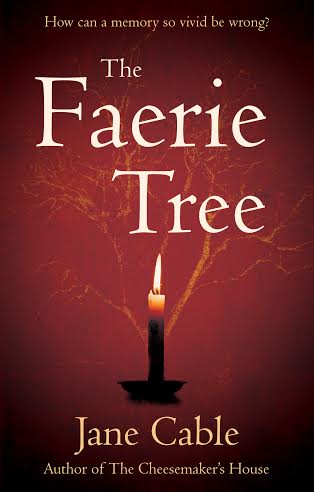When I was a rookie author working with my first editor I wanted to write a book with a central character who had OCD. I had a friend with quite a severe form of the illness and he was willing to help me to get it right. But I was told in no uncertain terms that I couldn’t write romantic fiction with a hero like that because no-one would want to read it.
I was prepared to accept the fact I couldn’t write it due to my technical ability, but not that the subject was taboo. Yes, it might make uncomfortable reading but surely it fitted perfectly with the romantic genre: X wants Y and Z stops them getting it.
I put the manuscript to one side (it’s still there, but for a different reason) and in the meantime The Cheesemaker’s House won the suspense and crime heat of the Alan Titchmarsh Show’s People’s Novelist competition. I was almost relieved when judge Sophie Hannah told me I needed a better editor. And totally vindicated when Jeffery Archer found Owen (who is teetering on the brink) a fascinating character.
With The Faerie Tree I was inspired to take things further. I had a good friend who’d suffered a major breakdown and I suppose I wanted to show him that a character with similar problems could get their life back on track. Robin’s struggle with depression is central to the story but he’s just like any other romantic hero – he’s funny, self aware and loving – he certainly doesn’t have ‘damaged goods – pity me’ stamped across his forehead.
Readers loved him too. Amazon reviewers said, “I fell a little in love with Robin myself,” and “Love, relationships, grief, depression, hope. The Faerie Tree covers it all, yet it’s not all doom and gloom.” But the best was from blogger extraordinaire Ann Cater: “Jane Cable creates characters that are believable, who have problems, who are often annoying and frustrating, but whose story is compelling. She cleverly takes the reader into the heads of two damaged and fragile people, and this is done so very well. Despite their faults, both Izzie and Robin are characters that the reader will root for throughout this really excellent novel.”
I’m not quoting these to show off – I’m making a point. People with mental health issues do make good characters in romantic fiction. Not just shuffling on and off the side-lines, but right in the centre of the story. The reviews also made me brave enough to tackle the thorny issue of PTSD amongst service personnel in Another You.
I’m not the only one: search PTSD romance in Kindle books and there are 341 titles in contemporary alone. Big publishers and writers are tackling the issue too, with books like Kristin Hannah’s Home Front (published by Pan) and USA Today best-selling author Kallypso Masters’ Nobody’s Lost.
Sadly it seems more people are suffering from mental health issues. But perhaps it’s just that happily they are more likely to seek help and not feel ashamed. There is a greater understanding that depression and other illnesses have a physical source in the imbalance of brain chemicals (read Tim Cantapher’s Depressive Illness: The Curse of the Strong if you want to know more) so stigma and taboo really shouldn’t come into it.
While readers want romantic fiction to take them away from their everyday lives, many need to be taken to a world they recognise. And in a way that gives them hope. X wants Y and despite Z, they get it.


